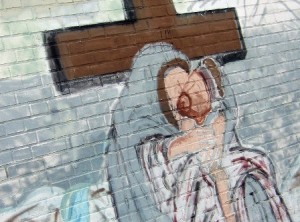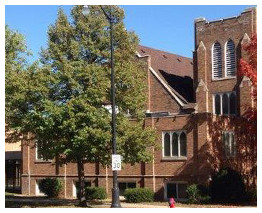Lent concludes this month with Holy Week. It starts out on March 24 with Palm Sunday, the day when Jesus rode into Jerusalem to shouts of “Hosanna!” from the crowds. After that joyful celebration, though, the focus of the day turns to the Passion of our Lord. “Passion” comes from the Latin word “to suffer” and refers to Jesus’ suffering and death on the cross to save the world from condemnation.
For many people, Jesus’ Passion has always been a strike against him. In I Corinthians, St. Paul admits that “Christ crucified (is) a stumbling block to Jews and foolishness to Gentiles.” Still today, skeptics wonder what kind of God would subject his Son to such torment or how much of a Savior Jesus can be when he just surrendered to his enemies.
Yet, it is precisely the suffering and death of Jesus that makes him our Savior, one who can bring hope and healing to our life’s struggles. In The Cross of Christ, the great evangelist and theologian John R. W. Stott testifies:
“I could never myself believe in God, if it were not for the cross. The only God I believe in is the One (Friedrich) Nietzsche ridiculed as ‘God on the cross.’
In the real world of pain, how could one worship a God who was immune to it? I have entered many Buddhist temples in different Asian countries and stood respectfully before the statue of the Buddha, his legs crossed, arms folded, eyes closed, the ghost of a smile playing round his mouth, a remote look on his face, detached from the agonies of the world.
But each time, after a while I have had to turn away. And in imagination I have turned instead to that lonely, twisted, tortured figure on the cross, nails through hands and feet, back lacerated, limbs wrenched, brow bleeding from thorn-pricks, mouth dry and intolerably thirsty, plunged in Godforsaken darkness.
That is the God for me! He laid aside his immunity to pain. He entered our world of flesh and blood, tears and death. He suffered for us. Our sufferings become more manageable in the light of his.
There is still a question mark against human suffering, but over it we boldly stamp another mark, the cross that symbolizes divine suffering. ‘The cross of Christ… is God’s only self-justification in such a world’ as ours….
‘The other gods were strong; but thou wast weak; they rode, but thou didst stumble to a throne; But to our wounds only God’s wounds can speak, And not a god has wounds, but thou alone.’”
The suffering and death of Jesus assures you and me of his love and presence, his awareness and understanding, his grade and mercy in even the worst struggles of life, including the hour of death. “For we do not have a high priest who is unable to sympathize with our weaknesses, but we have one who in every respect has been tested as we are, yet without sin.” (Hebrews 4:15)
Grace and peace,
Click here for Faith Lutheran’s 2013 Holy Week schedule

